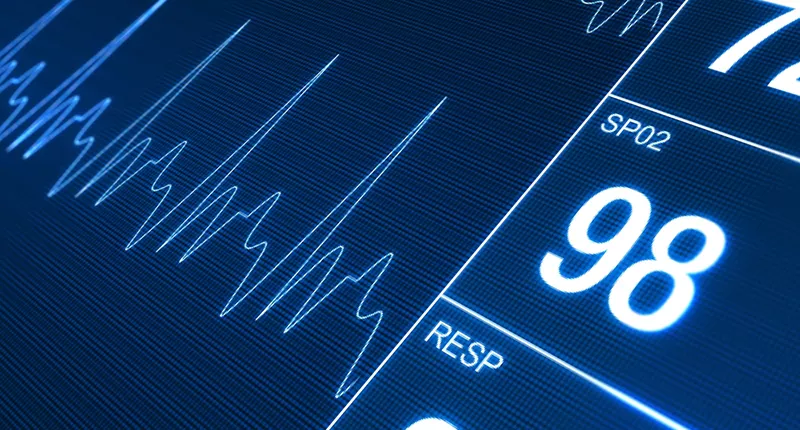High blood pressure (hypertension) and high pulse rate (tachycardia) are two common cardiovascular issues that can significantly impact one’s health and quality of life. While these conditions are often discussed separately, there are instances where they can occur together, creating a unique set of challenges for diagnosis and treatment. In this article, we delve into the intricacies of what causes a high pulse with low blood pressure, exploring the underlying factors, potential health risks, and management strategies.
Blood Pressure And Pulse
Before delving into the causes of high pulse with low blood pressure, it’s crucial to understand what blood pressure and pulse rate signify and how they are measured.
Blood pressure refers to the force of blood against the walls of your arteries as your heart pumps it around your body. It is typically measured in millimeters of mercury (mm Hg) and is recorded as two numbers: systolic pressure (the top number) and diastolic pressure (the bottom number). A normal blood pressure reading is typically around 120/80 mm Hg.
Pulse rate, on the other hand, refers to the number of times your heart beats per minute (bpm). A normal resting pulse rate for adults is generally between 60 and 100 bpm, although this can vary based on factors such as age, fitness level, and overall health.
SEE ALSO: What Is The Right Blood Pressure for My Age
What causes A high Pulse with Low Blood Pressure?
Dehydration: One of the common causes of high pulse with low blood pressure is dehydration. When your body lacks an adequate amount of fluid, your blood volume decreases, leading to lower blood pressure. To compensate for this drop in blood pressure, your heart may beat faster, resulting in a high pulse rate.
Heart Conditions: Certain heart conditions can also contribute to a high pulse with low blood pressure. For example, conditions like bradycardia (slow heart rate) or heart valve disorders can cause your heart to pump less efficiently, leading to a compensatory increase in pulse rate to maintain adequate blood flow.
Blood Loss: Significant blood loss due to trauma, surgery, or internal bleeding can cause a sudden drop in blood pressure. In response, your heart may speed up to maintain circulation, resulting in a high pulse rate.
Medication Side Effects: Some medications, such as beta-blockers or calcium channel blockers used to treat high blood pressure, can cause a drop in blood pressure along with an increase in pulse rate as a side effect.
Anemia: Anemia, characterized by a low red blood cell count or low hemoglobin levels, can lead to decreased oxygen delivery to tissues. In response, the heart may pump faster to compensate for the reduced oxygen-carrying capacity of the blood, resulting in a high pulse rate.
Endocrine Disorders: Certain endocrine disorders like thyroid dysfunction (hyperthyroidism) can cause an increase in both heart rate and blood pressure. In cases where blood pressure remains low despite a high pulse rate, hormonal imbalances may be a contributing factor.
Shock: In severe cases of shock, such as septic shock or anaphylactic shock, blood pressure can plummet rapidly. The body’s response to this critical situation often involves a rapid increase in heart rate to maintain vital organ perfusion, leading to a high pulse rate despite low blood pressure.
Infections and Inflammation: Acute infections or inflammatory conditions can trigger a systemic response that includes changes in heart rate and blood pressure. Conditions like sepsis or certain autoimmune diseases may manifest with a high pulse rate and low blood pressure.
Emotional Stress or Anxiety: Emotional stress or anxiety can temporarily elevate both heart rate and blood pressure. While the increase in heart rate is typically accompanied by a rise in blood pressure, in some cases, individuals may experience a high pulse rate with relatively low blood pressure due to the body’s complex response to stress hormones.
Health Risks Associated with High Pulse And Low Blood Pressure
The combination of high pulse and low blood pressure can pose several health risks, including:
Reduced Organ Perfusion: Low blood pressure can compromise the delivery of oxygen and nutrients to vital organs, especially when coupled with a high pulse rate that may not adequately compensate for the reduced blood volume.
Increased Risk of Falls: Low blood pressure can lead to dizziness or lightheadedness, increasing the risk of falls, particularly in older adults.
Cardiovascular Strain: A persistently high pulse rate can put strain on the heart muscle, potentially leading to conditions like arrhythmias or heart failure over time.
Compromised Exercise Tolerance: Individuals with a high pulse and low blood pressure may experience reduced exercise tolerance due to inadequate blood flow to muscles during physical activity.
Management Strategies
Managing high pulse with low blood pressure often involves addressing the underlying cause while also focusing on symptom management. Here are some strategies that may be recommended:
Hydration: Ensuring adequate fluid intake can help prevent dehydration, which is a common cause of high pulse and low blood pressure.
Medication Adjustments: If medication side effects contribute to the condition, adjustments to medication dosages or switching to alternative medications may be necessary.
Treatment of Underlying Conditions: Treating underlying conditions such as anemia, thyroid disorders, or heart conditions can help normalize both pulse rate and blood pressure.
Lifestyle Modifications: Adopting a healthy lifestyle that includes regular exercise, a balanced diet, stress management techniques, and adequate sleep can contribute to overall cardiovascular health.
Monitoring and Follow-Up: Regular monitoring of blood pressure, pulse rate, and symptoms, along with follow-up appointments with healthcare providers, can help track progress and make necessary adjustments to treatment plans.
Conclusion
High pulse with low blood pressure can result from a variety of factors, ranging from dehydration and heart conditions to medication side effects and emotional stress. Understanding the underlying causes and associated health risks is crucial for effective management and prevention of complications. By addressing the root cause and adopting healthy lifestyle habits, individuals can work towards maintaining optimal cardiovascular health and well-being.

